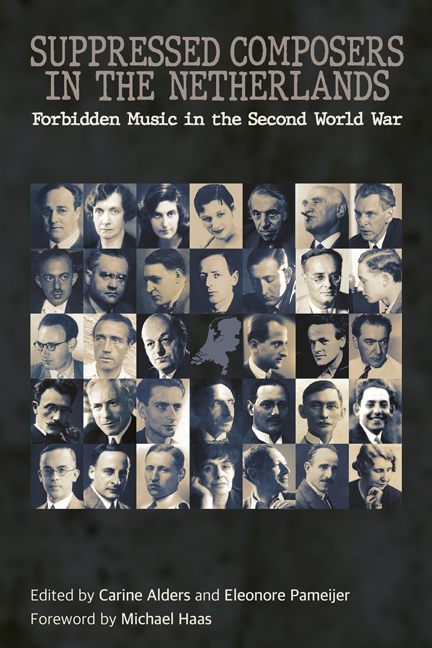21 - Israel Olman
Published online by Cambridge University Press: 09 May 2024
Summary
Up until the Second World War, Israel J. Olman had been a celebrated choral conductor and composer. He wrote synagogal music as well as music for socialist choirs, to be performed at major singing competitions. His fame, and the fact that he was married to a Catholic, offered him some protection during the war. In the post-war years his reputation as a composer rapidly diminished, resulting in financial difficulties. The world had changed, and his musical idiom had become outdated.
It must have been a memorable evening, on 5 October 1924 in the Amsterdam Concertgebouw, when the composer, conductor and teacher Israel Olman was honoured by the Union of Workers’ Choral Societies on his 25th anniversary as a music professional. His works were performed by five choirs, and together, under the composer's direction, they premiered his new work Sullima. The programme booklet summarised the significance of Olman's skill as a musician, outlining how he had matured as a composer, appealing particularly to those who loved and promoted melodious choral works.
Now, over 50 years after his death, Israel Jacques Olman (usually known as Ies), whose reputation has faded into oblivion, deserves a revival. He was born on 17 August 1883 in the Sint Anthoniebreestraat, in the Jewish quarter of Amsterdam. His parents were part of the Jewish proletariat identifying more with the growing socialist movement of the late nineteenth century than adhering to Orthodox Judaism. His mother, Raatje Hamel, came from a musical family and his father, Jesaias (Jacques), was an amateur singer and a diamond worker, who worked his way up to become a broker in pearls and diamonds.
He was a talented child. At six, he started violin lessons and at twelve he was enrolled at a music school. His father was in favour of a wide-ranging musical as well as a solid general education. By 1895 he was studying violin, piano, music theory, choral singing and composition. He was taught, among others, by the renowned choir conductor and composer Frederik Roeske, the composer Bernard Zweers, who taught at the Amsterdam Conservatoire, and the conductor and organist Evert Cornelis.
- Type
- Chapter
- Information
- Suppressed Composers in the NetherlandsForbidden Music in the Second World War, pp. 201 - 208Publisher: Boydell & BrewerPrint publication year: 2024



